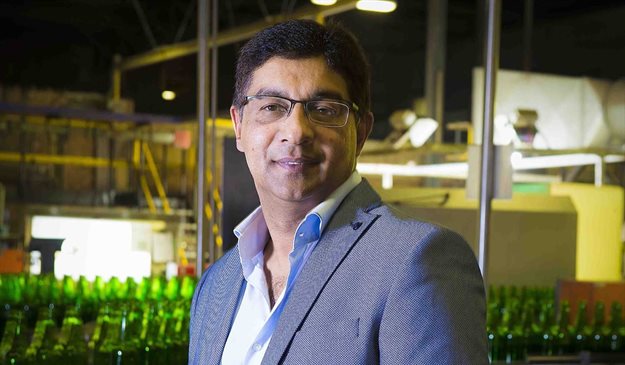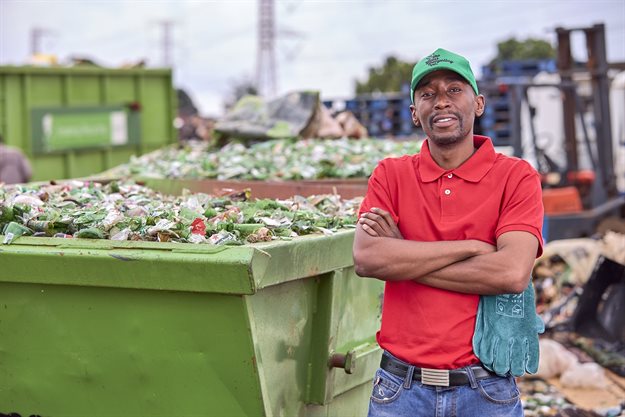While change has become fast paced and inevitable, one thing remains constant - the need to protect our environment. All possible means to do so, including recycling and reusing packaging, should be increased at pace.

Shabeer Jhetam, CEO of The Glass Recycling Company
The mission to change is further being driven with the imminent implementation of a mandatory national extended producer responsibility (EPR) scheme which will require producers to be accountable for the end-of-life impact of their products and packaging.
While this may be seen as a massive task for corporate South Africa, it is in fact one of the main reasons for the existence of producer responsibility organisations (PROs) and recycling packaging organisations to assist the industry to self-regulate and coordinate its reuse and recycling activities, and educate consumers, among other activities.
Vested interest in success of EPR
All stakeholders in the value chain, including the producers, brand owners, retailers, waste managers and consumers, have an integral role and responsibility to ensure that this is achieved successfully. Every role player has a vested interest in the success of the EPR scheme as the failure to meet government requirements will culminate in a more expensive way forward such as the possible implementation of a tax, or other alternatives such as the ban/limitation on certain types of packaging, among other penalties. The draft legislation stipulates a fine or imprisonment of 15 years or both for non-compliance should a producer not comply/meet the proposed EPR requirements.
The intention of South Africa’s EPR scheme will see producers taking ownership for the management of the responsible disposal of packaging such as glass bottles and jars discarded after use by consumers. Ideally, producers should opt to partner with an experienced and successful producer responsibility organisation such as The Glass Recycling Company (TGRC) to achieve their EPR goals and requirements.
Any EPR partner or organisation will be required to enable a producer or business to fulfil its recycling and EPR mandate while also empowering the business to cater to other aspects of the EPR scheme such as training support and mentorship programmes, enterprise development as well as providing equipment and infrastructure support. These elements will all be vital to enable recycling and the diversion of recyclable packaging from landfills across South Africa.
80% of glass packaging diverted from landfills
TGRC has played a vital role over the past 14 years, ensuring that millions of tonnes of used glass packaging did not enter South African landfills. More than 80% of all glass packaging is now diverted from landfills. Since the inception of TGRC, an incredible 3.9 million tonnes of non-returnable glass was recycled. As a result of our organisation’s efforts, a mere 20% of glass packaging is currently sent to landfill with continued efforts decreasing this number.
A core component of TGRC’s success is its vast network of convenient, community glass recycling banks. We also partner with SMMEs to help enable their potential to become sustainable contributors to national economic growth and job creation. As a direct result of TGRC’s commitment to entrepreneurship and income creation, more than 50,000 community members across South Africa are also able to earn a source of income.
As we look to the future towards a post-pandemic world characterised by a focus on economic recovery, a greater sense of community, belonging and empathy, TGRC will continue growing as a leader and driver of glass recycling in South Africa. The implementation of EPR schemes will play a central role in an impactful and sustainable societal shift towards recycling in South African society.
To help achieve this, we will continue our ongoing commitment to partner with, guide, and positively influence manufacturers, government and other stakeholders in the formulation and delivery of effective recycling legislation, policies and practices. The Glass Recycling Company embraces our role to continue to support industry players across South Africa as their glass recycling EPR partner of choice.
















































